Back to Support from Home Page
Conscientious
objectors felt isolated in their work camps. Often the camps were
too far to make visits or communication with family and friends
possible. Add to this the fact that the alternative service work
camps were the first time away from home for many COs, and you can
see how many were homesick.
Abram
L. Ens barely got to go home at all.
“I
was home twice in twenty-eight months. The first time was in October
1942, when my younger brother passed away. I got one week leave.
The second time was in January 1943, when I had two weeks leave.”
[ASM, 229-231]
Helen
Fehr tells the sad story of her brother, David C. Fehr.
“When
he received his order [to go to the work camp], he quietly prepared
himself, and on January 6, 1942, a very cold day, he said so-long,
and with other young men, left for the unknown. Life over there
was entirely different. He worked in the bush cutting down trees,
road construction, or whatever was required of him.
“From
his regular letters home, we could tell that he was homesick.
He often mentioned how a dog owned by his boss, Mr. Morton, would
come to visit him. He loved that.” [ASM, 13]
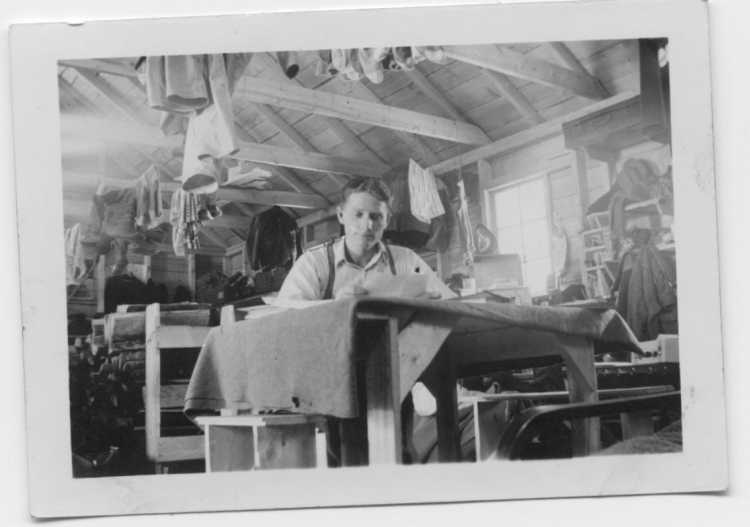 |
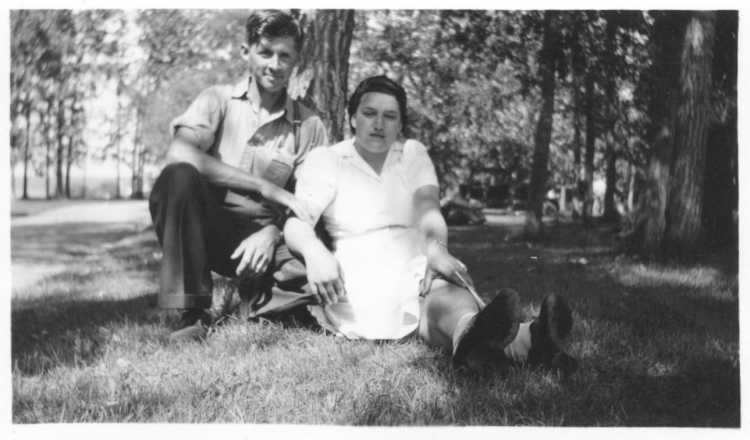 |
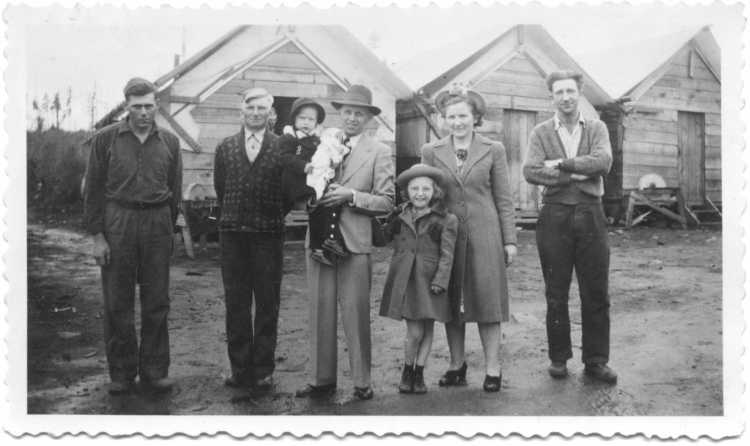 |
| Cornie Giesbrecht, age 16, writing home |
A young woman visiting a CO |
A family visiting the CO camp |
David
worked in the gravel pits in Riding Mountain National Park. On 13
April 1942, David, being deaf in one ear, didn't hear the warning
call in the gravel pit, and a large chunk of frozen gravel fell
and buried him, crushing his leg and chest. After his release, doctors
discovered that this damaged his liver as well. In 1947, his health
began to fail rapidly as a result of these injuries. He died 17
April 1947. Here's a poem he wrote while he was still in camp.
I
Wonder If They Miss Me on the Farm
Now
I wonder if they miss me on the farm?
Way
down south where coyotes do but little harm.
On
the prairie wide and open,
No
hills are there, aslopin;
Oh,
I wonder if they miss me on the farm!
Life's
more clear and pleasant there ‘cause freedom reigns
(Tho'
your labor may not always just bring gains)
Where
you get up every morning,
Without
a bell as warning.
Now
do they miss me on the level plains.
It's
a long time since I left my friends so gay,
To
be conscripted to the Northland for to stay.
But
soon I'll hear cocks crowing,
At
wee chicks starting growing.
Sometimes
I wonder: do they miss me far away?
Oh
I long for in the moonlight there to roam,
To
hear the breezes in the silent tree tops groan,
To
hear the dogs a' barking,
At
cars that come for parking.
Do
they really miss me in my “Home Sweet Home”?
[ASM,
13-14]
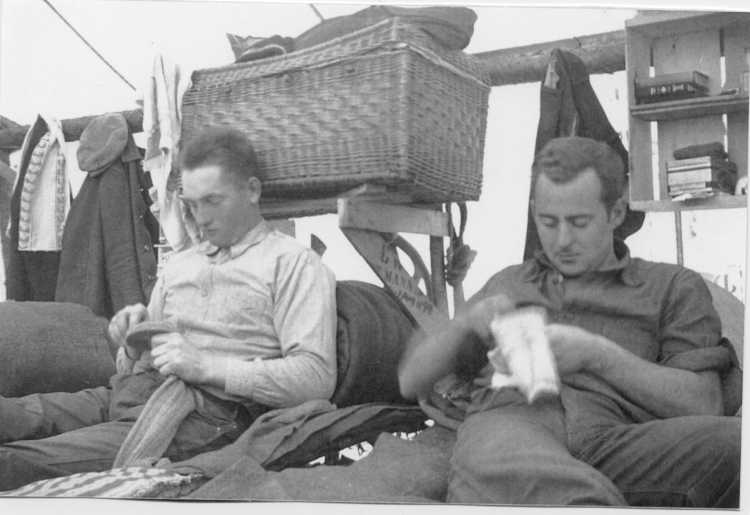 |
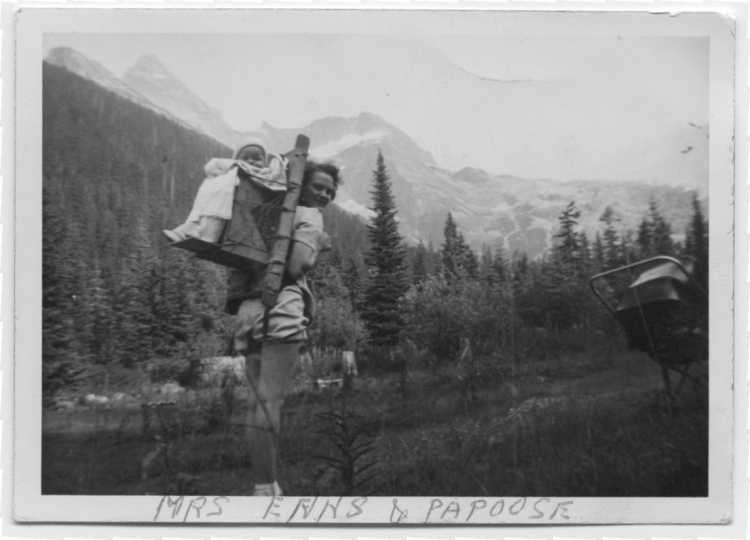 |
| Darning sock after hours at Camp Giekie, Jasper Park |
Bill Enns' wife and their daugther visited him at camp |
Back to Support from Home Page |


